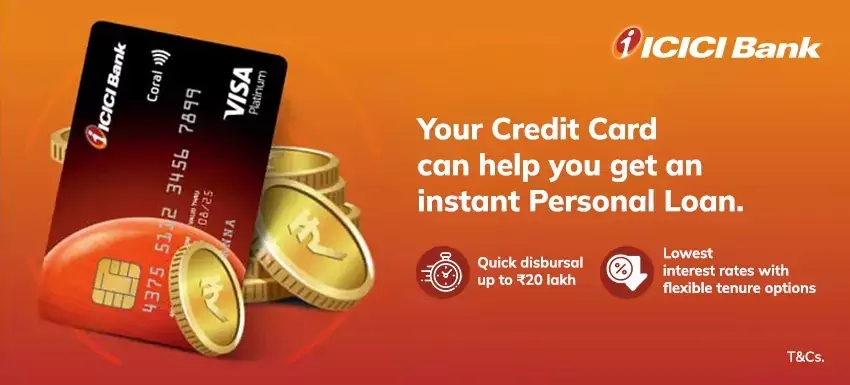THE
ORANGE
HUB
Minimum Credit Score for Credit Card – CIBIL Score Eligibility

Understanding the importance of CIBIL score is essential when applying for a Credit Card. A good credit score enhances the chances of your application getting approved and influences the credit limit and terms you receive. This blog post gives information about the minimum CIBIL score required for getting a Credit Card and also includes steps to improve your score.
Understanding CIBIL score
CIBIL score or credit score is a three-digit number ranging from 300 to 900 that represents your creditworthiness. It is calculated basis your credit history, which includes your repayment behaviour & credit utilisation, as well as the duration of your credit history. Lenders use this score to assess the risk of lending to you. The higher your score, the better your chances of securing credit on favourable terms.
What is the minimum CIBIL score required to get a Credit Card application approved?
The minimum CIBIL score for a Credit Card approval is 750. A score of 750 or above is seen as a good score and indicates lower risk to lenders, increasing your chances of application approval.
Factors influencing the required CIBIL score
- Type of Credit Card: Premium Credit Cards often require higher CIBIL scores than basic or Secured Credit Cards.
- Income Level: Higher income can sometimes offset a lower credit score, indicating a better repayment ability.
- Existing Debt: A lower debt-to-income ratio can improve your chances even if your credit score is low.
- Credit history: A long, positive credit history sometimes compensates for a lower score.
Why is a good CIBIL score important?
A good CIBIL score is crucial for getting the benefits listed below.
- Approval Chances: A higher score increases the chances of a Credit Card application getting approved.
- Credit Limit: A higher CIBIL score can mean a higher credit limit on your Credit Card, giving you more spending power. You can also avail a Personal Loan on Credit Card (PLCC).
- Interest Rates: You may qualify for lower interest rates on loans and Credit Cards, reducing your cost of borrowing.
- Better Terms: A good score can improve overall terms, including fees and reward programme benefits.
How to improve your CIBIL score?
Timely Payments
Ensure that you pay all your Credit Card bills, Loan EMIs and other dues on time. Late payments negatively impact your credit score. Setting up reminders or automatic payments can help you stay on track.
Reduce Outstanding Debt
Try to pay off existing debts as much as possible. High outstanding debt affects your Credit Utilisation Ratio (CUR), a critical factor in determining your credit score. Aim to keep your CUR below 30%.
Avoid Multiple Credit Card/ Loan Applications
Every time you apply for a Credit Card or Loan, an inquiry is triggered towards your credit report, which can lower your score. Avoid applying for multiple Credit Cards or Loans in a short period.
Maintain a Healthy Credit Mix
A mix of credit types, such as Secured Loans (Home Loan or Auto Loan) and Unsecured Loans (Personal Loans or Credit Cards), can positively impact your credit score. However, ensure that you can manage the repayments comfortably.
Check Your Credit Report Regularly
Regularly checking your credit report helps you stay informed about your credit status. It also allows you to identify and dispute any errors that might negatively affect your score. You can get a free credit report from CIBIL once a year.
Tips to apply for a Credit Card with a low CIBIL score
If your credit score is below the preferred threshold, you can still take steps to improve your chances of Credit Card approval. Here are some practical strategies to consider:
Apply for a Secured Credit Card
Secured Credit Cards are Credit Cards that are issued against Fixed Deposits. This means you provide your Fixed Deposit as a collateral, which reduces the risk of the bank or financial institution. Lenders offer Secured Credit Cards to individuals with low credit scores since the Fixed Deposit acts as a collateral.
How it works
You deposit a certain amount of money into a Fixed Deposit, which acts as a collateral for the Credit Card. Typically, the credit limit is a percentage of the Fixed Deposit amount.
Benefits
Using a Secured Credit Card responsibly, making timely repayments and maintaining low outstanding (unpaid) balances can help improve your credit score. As your score improves, you may qualify for an Unsecured Credit Card.
Example: If you deposit ₹ 50,000 in a Fixed Deposit, the bank may offer you a Credit Card with a limit of up to 90% of that amount.
Opt for a Credit Card from your bank
If you have a long-standing relationship with your bank, such as a Savings Account or a Salary Account, the bank may be more inclined to offer you a Credit Card even if your credit score is low. Banks value existing customer relationships and are sometimes willing to consider factors beyond just the credit score.
Relationship benefits
Banks can access your financial history with them, including your account balances, transaction history and salary credits. A positive history can work in your favour.
Personalised offers
Some banks offer special Credit Cards to their existing customers, which might not be available to new applicants. These offers could include lower interest rates, annual fee waivers or customised credit limits.
Example: If you have been maintaining a Salary Account with a particular bank for several years, the bank might offer you a Credit Card with favourable terms, even if your CIBIL score is not ideal.
Show proof of stable income
A stable and sufficient income can significantly enhance your chances of getting a Credit Card despite a low credit score. Lenders may consider your repayment capacity based on your income level.
- Income verification: Be prepared to provide proof of income, such as salary slips, bank statements and tax returns. These documents show your ability to repay the borrowed amount.
- Supplementary income: If you have additional sources of income, such as rental income, income from freelance assignments or returns on investments, include this information in your application. Multiple income streams can make you a better candidate for lenders.
Example: If you earn ₹ 1,00,000 per month and have a steady job, providing this information along with your application can convince the lender of your repayment ability, offsetting a lower credit score.
Conclusion
Understanding the CIBIL score and the minimum score required for a Credit Card helps you strengthen your chances of approval. While a high score significantly improves your chances of approval, those with lower scores still have options. Responsible credit usage is crucial for maintaining a good credit score and enjoying better financial opportunities.
FAQs
Does my CIBIL score affect my chances of getting a loan against my Credit Card?
Yes, it does impact your eligibility to secure a loan on your Credit Card. Loan eligibility depends on your spending, repayment habits and credit score. A good CIBIL score i.e., 750 and above, is highly favourable.
Can I get a loan against my Credit Card if my CIBIL score is low?
Yes, you may still get a loan against your Credit Card despite a low CIBIL score. ALoan approval depends on factors like income stability, repayment history and the bank’s internal policies.
Scroll to top



